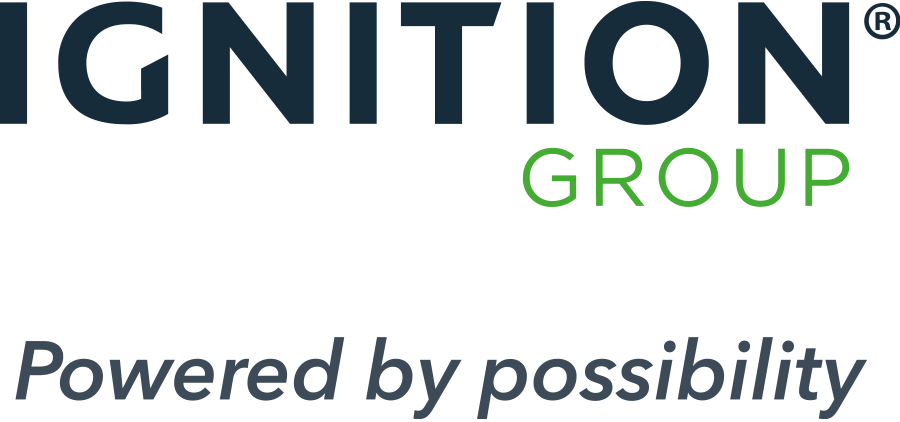
A New Year usually brings a sense of hope and optimism – it’s an opportunity to start fresh and pursue goals we’ve postponed or failed to achieve in the past. Many people set themselves New Year’s resolutions and confidently proclaim this will be their year. However, if you’re like me, you may have learned that New Year’s resolutions are often just well-intentioned, planned disappointments. More often than not, these resolutions are made in the aftermath of holiday cheer and fuelled by a kind of naïve optimism that convinces us things will magically change – without us having to change much at all.
Personally, I don’t believe in New Year’s resolutions. But I do believe in setting some relevant, meaningful goals – goals that challenge you, make you uncomfortable and require you to take deliberate action. These are the goals that I believe, while difficult, are worth pursuing because they push us beyond our comfort zones, forcing us to grow in ways we wouldn’t otherwise.
The power of a ‘scary’ goal
I’ve found that the most impactful goals are often the ones that scare me and make me uncomfortable. A goal that feels too easy or achievable is likely not the kind of goal that will move the needle in your life or career. A ‘scary’ goal – one that stretches your limits, forces you to confront your fears and challenges your self-doubt – is often the best indicator that you’re aiming for something significant.
When I think about the goals that have had the most lasting impact on my professional and personal life, they are often the ones that caused a knot of anxiety when I first considered them. Whether it was taking on a leadership role, launching a new initiative or tackling a major personal development challenge, these goals were intimidating at first. But they were also the ones that resulted in profound growth and a greater sense of fulfilment once achieved.
In my experience, when you set goals that feel a bit scary, it’s an indication that you are on the right track. It means you’re reaching beyond what you know you can do today, and you’re setting yourself up to achieve something that will make you feel proud and is likely to have a meaningful impact on your work and those around you.
The importance of clarity and motivation
Clarity and motivation are the best friends of goal achievement. To illustrate this, if your goal is to complete a postgraduate qualification or to be promoted to a senior leadership role, it’s important to understand why these goals matter to you personally. What will achieving this goal mean for your life? For your career? How will it contribute to the kind of person you aspire to be? The trap to avoid here is pursuing a goal because it feels like the right thing based on what is expected of you by your peers, your manager or your family. If the goal isn’t deeply meaningful for you, the motivation to achieve it will need to come from somewhere outside of you – which is often a recipe for failure.
When you get clear on your ‘why’, the goal becomes more than just a checkbox to tick off; it becomes a source of motivation, a momentum that keeps you going during the inevitable challenges and setbacks. Writing down your goals is an essential part of the process, and it should be done with specificity; don’t just focus on the goal – consider the timing, the milestones and what actions you will take to achieve it.
Accountability: getting others involved
While setting meaningful goals is critical, achieving them requires action – and input from others. One of the most valuable things you can do for yourself is to share your goals with someone you trust – whether that is a mentor, a colleague or a trusted friend. This person can offer valuable and honest perspectives, keeping you grounded and focused. In the spirit of goal setting being a forward-looking activity, I would recommend using Marshall Goldsmith’s ‘feed-forward’ approach (rather than relying purely on traditional ‘feedback’). Feed-forward encourages you to ask key people for suggestions for the future; when asked in the context of achieving a specific goal, they can also help you gather suggestions and input from key individuals as to how you achieve the goal and what the impact for others might be.
Goal setting without accountability is like setting off on a road trip without a map or GPS – you may be moving, but you’ll quickly lose direction and are unlikely to end up at your desired destination. By engaging others in your goal-setting process, you unlock greater commitment and motivation as others tend to become invested in your success. The feed-forward input you receive should inspire and motivate you, and the feedback you receive will keep you honest, ensuring you stay on track and remain focused on what truly matters.
Measuring success: progress, not perfection
Finally, when it comes to measuring success, it’s important to remember that it isn’t always about perfection or achieving the goal immediately. Success is about progress, learning and growth along the way. You might fall short of your initial target, but that doesn’t mean you’ve failed – it means you’ve learned something valuable, and now you’re better equipped to keep moving forward. During our last team meeting of the year, when I asked my team what their highlight for the year was, I was struck by the fact that the overwhelming response was around growth, not achievement of any one particular goal or ambition. It had been a challenging year for the team, with many disappointments and frustrations, but they all were able to reflect on how they had grown both personally and professionally.
When you set scary, meaningful goals, you’re not just working toward an outcome, you’re investing in your own growth. Success isn’t a straight line, and the road will often be bumpy. But every step you take brings you closer to the person you want to be.
Measuring your success requires you to identify meaningful milestones and track progress regularly. Ask yourself: What am I learning along the way? What skills am I developing? How am I becoming a better version of myself or a better leader as a result of this goal?
Final thoughts: embrace the challenge
As you embark on setting your own goals, I encourage you to choose ones that challenge you – embrace the discomfort that comes with setting goals that feel intimidating.
Success in its truest form is not about achieving everything on your list. It’s about being intentional with the goals you set, staying committed and learning from the journey. This might mean your goals change during the year and end up being different to what you initially planned or thought was relevant – that’s ok, it’s all part of the process.
So, as the year unfolds, take the opportunity to set goals that matter – goals that are worth pursuing, even when they make you a little uneasy. Because when you achieve them, you’ll know you’ve earned it.
Michelle Rocke is Head of HR for Ignition Group and Product.


